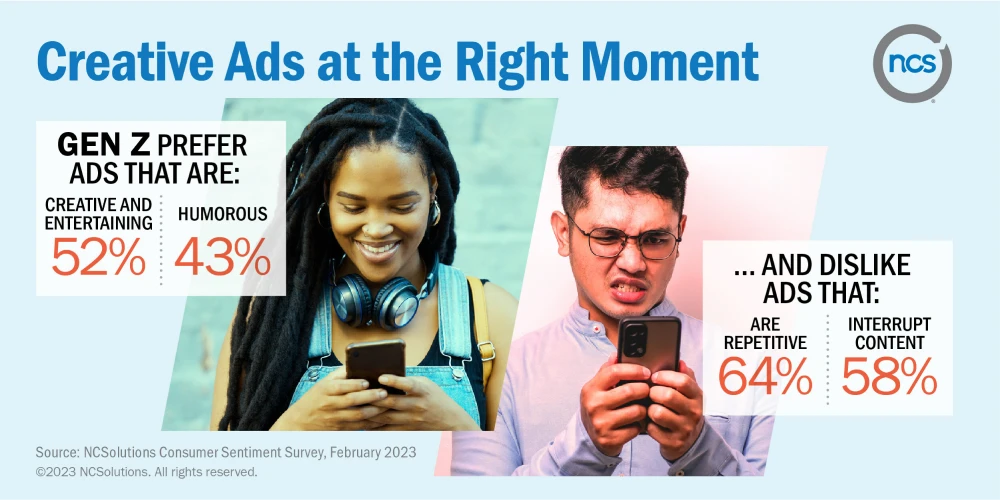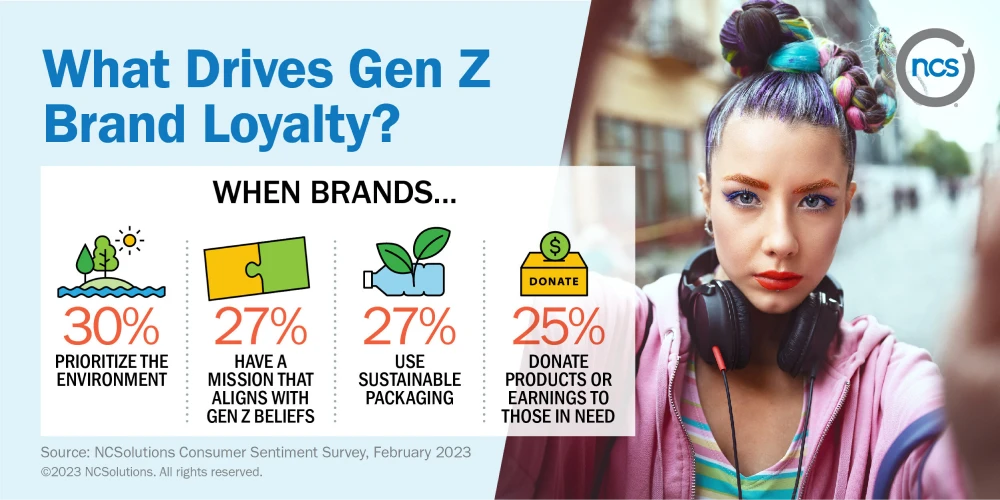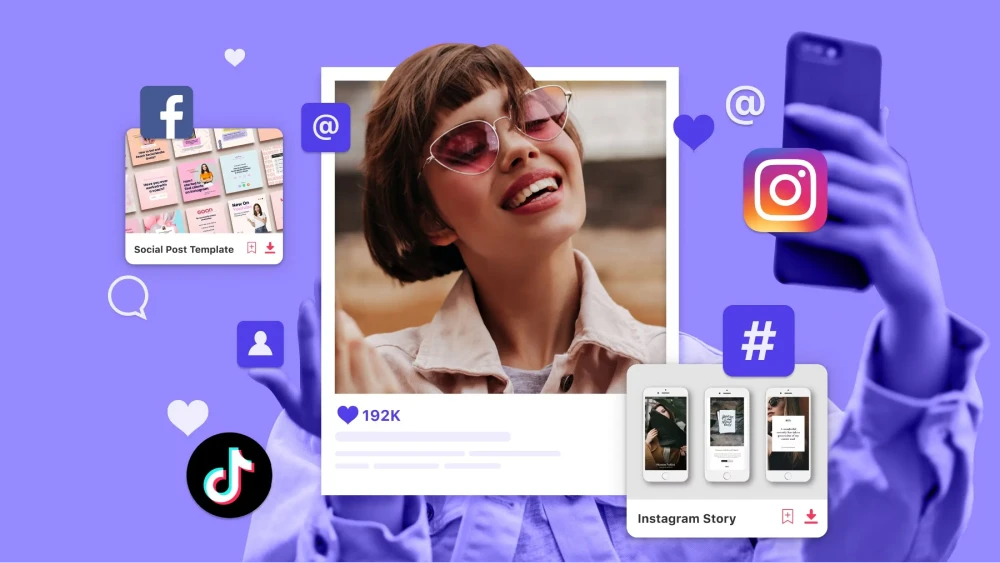Generational shifts in media consumption and communication habits are transforming how consumers engage with brands. For younger audiences, especially Gen Z, social media has become more than a marketplace—it’s a hub for news, entertainment, product discovery, and social interaction. Their consumption patterns are driven by continuous cycles of inspiration, exploration, and community involvement. To generate excitement and foster strong brand loyalty, businesses must embrace these changing behaviors and preferences.
Recognizing the varying consumption habits across generations is essential. While Gen Z’s content preferences are prominent, other age groups also have distinct behaviors and needs. Adopting an omnichannel marketing approach that addresses multiple generations is vital, blending both digital and traditional advertising methods for maximum reach and impact.
But how do you understand what unique preferences might be appealing to Gen Z? How can you ensure greater reach and resonance with this target audience across platforms? Let's talk about this in a new Mobupps article.

Generation Z stands out in several unexpected ways. Contrary to the assumption that they focus on saving their relatively lower income, they aren't primarily driven by price or promotions. Instead, this generation is more concerned with a brand’s politics, ethics, and overall perception. Gen Z seeks products that resonate with their lifestyle, bring joy, or align with their values, and they’re not willing to settle for less.
Gen Z holds the title as the most influential generation in shaping brand success. They're more transparent about their purchasing choices from the beginning of their shopping journey and show less interest in established luxury brands or logos. Their decisions are largely guided by trusted sources like friends, family, and experts rather than brand reputation. However, Gen Z demonstrates loyalty more toward the retailers they shop at than the brands they buy.
Gen Z relies less on traditional search engines, preferring to gather information from social platforms like Reddit, TikTok, and YouTube when choosing products. They use TikTok for beauty product previews or YouTube to see the latest fashion trends. Their engagement with social media extends beyond interaction; it's a tool for social shopping, trend-following, and research.

1. To be one click away. Young consumers expect instant access to technology. Thanks to social media, instant gratification has become the norm. Brands expect immediacy in all interactions, while consumers want a high level of speed and seamless service.
2. Keep your finger on the pulse. Gen Z will also use Black Friday and Cyber Monday to get items off their wish list. Half of shoppers will time big tech purchases for laptops and cell phones with sales, and more than a quarter will take advantage of the opportunity to buy holiday gifts.
3. Stand up for something. There has been a lot of rhetoric over the past few years that consumer loyalty is on the wane. Sustainability, representation, and social justice are just as important to generational audiences as accessibility and service. Bad experiences shared in stories or written in reviews will reach a much wider audience than ever before. However, a good experience is a direct marketing collateral that can and should be used.
4. Be real and direct. Gen Z wants to be spoken to more directly, valuing authentic communication over big-budget TV ads. Gen Z's trust in their peers far exceeds their trust in more traditional marketing methods. Influencer marketing is one of the tools at your disposal to help you build relationships on a more personal level.

Diversify your campaigns and try new things. Don't treat everyone the same, instead experiment with messaging and creativity to see what works. Personalize where you can, and importantly, keep the customer at the heart of the brand.
It's not just about replacing billboards with interactive campaigns; it's about meeting the needs of Gen Z, ensuring that every interaction resonates, and fostering trust and transparency. Feel free to turn to Mobupps for personalized strategy and tactics so then marketing will become almost easy.
Generational shifts in media consumption and communication habits are transforming how consumers engage with brands. For younger audiences, especially Gen Z, social media has become more than a marketplace—it’s a hub for news, entertainment, product discovery, and social interaction. Their consumption patterns are driven by continuous cycles of inspiration, exploration, and community involvement. To generate excitement and foster strong brand loyalty, businesses must embrace these changing behaviors and preferences.
Recognizing the varying consumption habits across generations is essential. While Gen Z’s content preferences are prominent, other age groups also have distinct behaviors and needs. Adopting an omnichannel marketing approach that addresses multiple generations is vital, blending both digital and traditional advertising methods for maximum reach and impact.
But how do you understand what unique preferences might be appealing to Gen Z? How can you ensure greater reach and resonance with this target audience across platforms? Let's talk about this in a new Mobupps article.

Generation Z stands out in several unexpected ways. Contrary to the assumption that they focus on saving their relatively lower income, they aren't primarily driven by price or promotions. Instead, this generation is more concerned with a brand’s politics, ethics, and overall perception. Gen Z seeks products that resonate with their lifestyle, bring joy, or align with their values, and they’re not willing to settle for less.
Gen Z holds the title as the most influential generation in shaping brand success. They're more transparent about their purchasing choices from the beginning of their shopping journey and show less interest in established luxury brands or logos. Their decisions are largely guided by trusted sources like friends, family, and experts rather than brand reputation. However, Gen Z demonstrates loyalty more toward the retailers they shop at than the brands they buy.
Gen Z relies less on traditional search engines, preferring to gather information from social platforms like Reddit, TikTok, and YouTube when choosing products. They use TikTok for beauty product previews or YouTube to see the latest fashion trends. Their engagement with social media extends beyond interaction; it's a tool for social shopping, trend-following, and research.

1. To be one click away. Young consumers expect instant access to technology. Thanks to social media, instant gratification has become the norm. Brands expect immediacy in all interactions, while consumers want a high level of speed and seamless service.
2. Keep your finger on the pulse. Gen Z will also use Black Friday and Cyber Monday to get items off their wish list. Half of shoppers will time big tech purchases for laptops and cell phones with sales, and more than a quarter will take advantage of the opportunity to buy holiday gifts.
3. Stand up for something. There has been a lot of rhetoric over the past few years that consumer loyalty is on the wane. Sustainability, representation, and social justice are just as important to generational audiences as accessibility and service. Bad experiences shared in stories or written in reviews will reach a much wider audience than ever before. However, a good experience is a direct marketing collateral that can and should be used.
4. Be real and direct. Gen Z wants to be spoken to more directly, valuing authentic communication over big-budget TV ads. Gen Z's trust in their peers far exceeds their trust in more traditional marketing methods. Influencer marketing is one of the tools at your disposal to help you build relationships on a more personal level.

Diversify your campaigns and try new things. Don't treat everyone the same, instead experiment with messaging and creativity to see what works. Personalize where you can, and importantly, keep the customer at the heart of the brand.
It's not just about replacing billboards with interactive campaigns; it's about meeting the needs of Gen Z, ensuring that every interaction resonates, and fostering trust and transparency. Feel free to turn to Mobupps for personalized strategy and tactics so then marketing will become almost easy.

